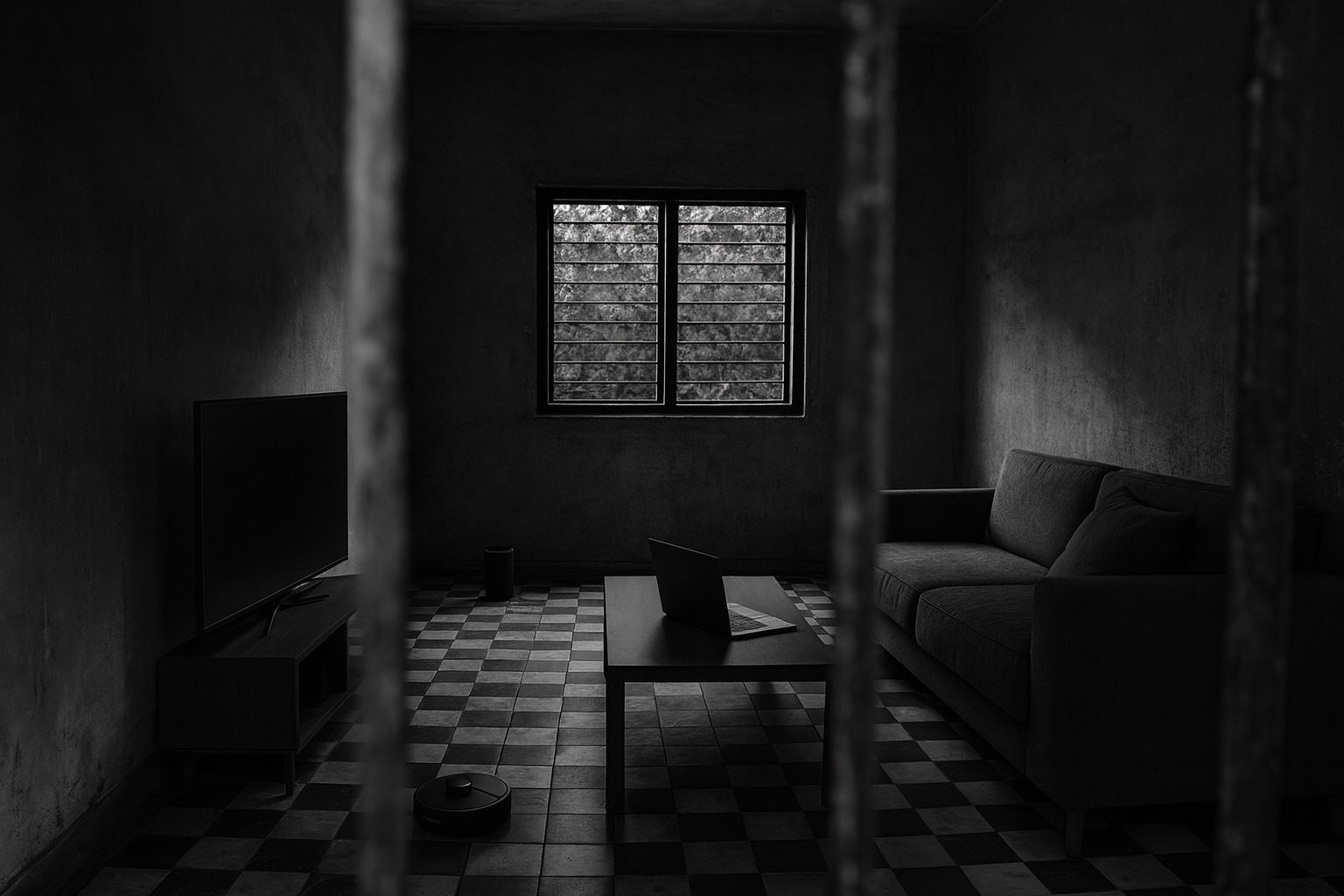
Fuel keeps getting more expensive. Flights, road trips, even the idea of simply going somewhere now feels like an indulgence. Meanwhile, next-day delivery gets cheaper. Somehow it costs more to move yourself a few miles than to move a parcel halfway across the continent. It’s as if the system quietly decided that travelling should be discouraged while staying put should be rewarded.
The more it costs to leave the house, the more reasons appear not to. And the longer we stay still, the more efficient the machine becomes. We call it convenience, but what we’re really describing is domestication, a species teaching itself to enjoy the cage.
Everything now comes to us. Food, work, entertainment, even social validation. Home has stopped being a place to return to and has become the centre of operation, the capital city of a private nation of one. We used to leave the house to live. Now we stay to manage. And the system doesn’t need to trap us; it just has to make staying feel sensible.
It’s easy to assume this is something being done to us, but maybe it’s something we’re quietly doing to ourselves. Maybe we’re just tired. The outside world feels loud, unpredictable, and too expensive to bother with. The roads are busier, the news angrier, the people harder to read. We retreat into our safe spaces not because someone told us to, but because modern life makes the alternative exhausting.
And when we do venture out, even digitally, it shows. Think about cars. Inside a vehicle, humans feel protected, sealed within a metal shell that gives them a false sense of dominance. It’s why mild-mannered people transform into volcanoes of rage behind a steering wheel. Now imagine that same mechanism applied to our homes. Four walls, Wi-Fi, and no real consequences. Is it any wonder so much of the modern world’s hostility now lives online? The house has become the new car, the internet the endless road, and we all think we’re better drivers than we are.
While we stay put, the home itself has become smarter, always on, always listening, always learning. A digital roommate who never sleeps. Isn’t that nice? Something that hears us 24/7, ready to recommend a new coffee machine, a pair of slippers, or maybe a cute black mask for that protest we just discussed with friends. Every word we speak at home is data, every preference a transaction, every pause a signal. There’s comfort in knowing we’re never truly alone, at least not in the commercial sense.
All of this creates an ecosystem that rewards stillness. The less we move, the more predictable we become. Predictability means profit. Chaos doesn’t sell well; inertia does. And if you stay put long enough, the system will learn everything about you, what you buy, when you eat, how you think, and exactly when to remind you that you might be running low on toilet paper. It doesn’t need to restrain you; it just has to keep offering better reasons not to test the edges.
Somewhere along the line, we stopped calling this isolation and started calling it progress. We connect instead of meet. We log in instead of show up. We explore the world through screens designed to flatter our own reflection. For all our talk of advancement, the human footprint isn’t shrinking in carbon, it’s shrinking in motion.
Maybe that’s the endgame. A society so comfortable, so immobile, that it doesn’t need to be controlled because it has learned to control itself. Make the world loud enough, expensive enough, unpredictable enough, and people will lock the door on their own. The fence no longer needs guards when everyone’s too entertained to look for the gate.
Fuel keeps getting pricier. Delivery keeps getting cheaper.
And we keep thanking the system for saving us the trip to the shop — our Victory Gin already waiting at the door, the telescreen about to play our favourite show.
You can also take a look at this subject on our youtube channel if you want to go further down the rabbit hold.
